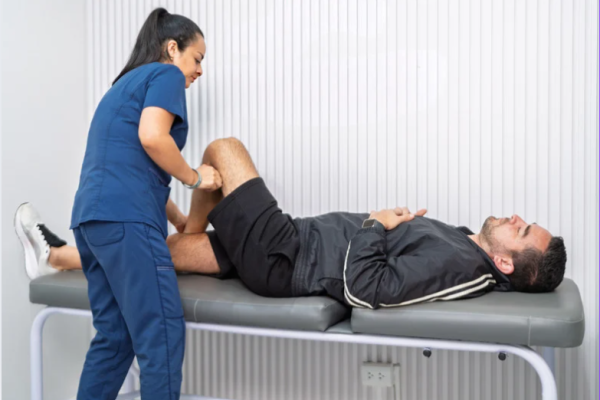Pain is one of the most common — and often most complex — presentations seen in general practice. While the instinct to provide rapid solutions is completely understandable, persistent or chronic pain usually benefits from a coordinated, team-based approach that extends beyond imaging, procedures, or medication adjustments.
This is where multidisciplinary pain care becomes especially valuable. Working alongside allied health professionals can support improvements in function, reduce disability, and help patients regain quality of life. In this model, GPs play an integral role as consistent, trusted clinicians who help anchor the patient’s care journey.
Why Coordination Matters
Persistent pain typically involves far more than tissue injury. It may include nervous system sensitisation, psychological distress, lifestyle factors, and cycles of reduced activity or fear of movement.
Multidisciplinary care — involving GPs, physiotherapists, psychologists, occupational therapists, pharmacists, exercise physiologists, and others — has been associated with:
- Improved functional outcomes
- Reduced reliance on medications, including opioids
- Lower long-term healthcare use
- Greater patient confidence and self-management
The GP as a Central Support in the Pain Care Team
As the clinician with an ongoing relationship with the patient, the GP is often in the best position to:
- Introduce the idea of a team-based approach when appropriate
- Facilitate referrals and help maintain clear communication between providers
Provide consistent messaging and help shape an understandable clinical narrative - Manage coexisting medical concerns and oversee medication plans
- Offer continuity when multiple clinicians are involved
Patients can sometimes feel overwhelmed by numerous appointments or differing advice. Stable GP involvement helps maintain clarity and a cohesive plan.
Allied Health Colleagues and Their Roles
Physiotherapists
Support the restoration of movement and function through graded activity, pacing, and exercise-based care.
Collaborative note: GPs and physios together can reinforce the message that gradual movement is safe and beneficial.
Psychologists
Assist with the emotional and cognitive aspects of persistent pain, including distress, worry, fear-avoidance, and mood concerns, using approaches such as CBT and ACT.
Collaborative note: Positioning psychological input as part of whole-person care helps normalise this important component.
Occupational Therapists
Work with patients to re-engage in meaningful activities, address workplace needs, and build sustainable pacing habits.
Collaborative note: OTs can be instrumental in helping patients reconnect with valued roles at home, work, and in the community.
Pharmacists
Provide medication reviews, guidance on tapering where appropriate, and support safe medication use.
Collaborative note: Pharmacists can help simplify complex regimens and improve patient confidence with medications.
Exercise Physiologists
Design structured, progressive exercise programs — particularly helpful for those with deconditioning or fear of movement.
Collaborative note: GP endorsement of supervised exercise can encourage patient participation and confidence.
Communication: The Glue Holding the Team Together
Clear communication helps ensure everyone involved is working toward shared goals. Helpful strategies may include:
- Shared care plans outlining key goals and timelines
Regular updates between providers to maintain consistent messaging - Patient-held summaries to reduce confusion when attending multiple appointments
Addressing Common Barriers
Patients may hesitate to engage with allied health due to concerns about cost, fear of movement, misconceptions about psychological care, or the belief that only medications will help. GP reassurance and clear explanations can make a significant difference in how patients respond to referrals.
Bringing the Narrative Together
Persistent pain can lead to confusion when different clinicians offer competing explanations. One of the GP’s strengths is helping to unify this narrative, offering consistent, validating guidance that focuses on improving quality of life and function rather than chasing complete pain elimination.
Coordinated pain care is a shared endeavour. With GPs, allied health clinicians, and patients working together, the path forward becomes clearer, more consistent, and more empowering. Rather than needing a single “fix,” patients benefit from a connected team — and the GP remains a central, trusted partner throughout that journey.


